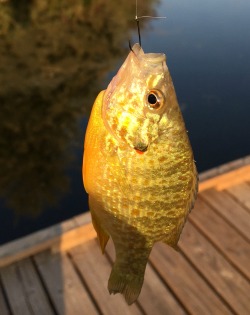Indicators on Where To Find Red Wigglers You Should Know
Table of ContentsThe Buzz on Where To Find Red WigglersAn Unbiased View of Where To Find Red WigglersWhere To Find Red Wigglers Fundamentals ExplainedGetting The Where To Find Red Wigglers To Work
Bait fishing with worms is a reliable, environmentally friendly technique that can help you reel in a variety of fish species. And it's all concerning the information, especially if you want to land the large ones. With so many kinds of angling worms offered, knowing which ones to choose as fish lure is a type of scientific research.Today, we're speaking about the lotion of the plant of fish baits: worms the holy grail of bait fishing - Where To Find Red Wigglers. You could believe freshwater worms are the best freshwater lure, yet here's an entire world of wormy wonder out there waiting to be explored!
Grab your bait container and obtain ready to join the ranks of the worm-wielding elite by finding out all concerning the slimiest, squirmiest, and most reliable fishing worms around., these are the staple worms in the angling area, as well, and for a good reason.
Getting The Where To Find Red Wigglers To Work
While Nightcrawlers might have a syndicate on the fishing scene, do not discount the power of various other worm ranges. These little wigglers are your secret weapons if you're looking for a surefire way to capture smaller sized fish. Trout are in some cases unforeseeable, and they scare conveniently. Given that using smaller worms like Mealworms and Red Worms for fishing suggests they wiggle less and present a smaller sized meal, they are a lot more likely to buckle down focus from trout.
These black-and-yellow worms are tiny yet mighty, loading a punch when it concerns bring in fish, especially smaller ones. Their soft texture and pleasant aroma make them irresistible to Panfish, Trout, and Crappie, along with Chub, Carp, and even Catfish. Although not practically a worm (it's in fact moth larvae), these little animals have a reputation for being a tasty treat on the block because of their high-fat web content (according to the fish, anyhow) and have actually also shown to be respectable angling worms throughout the cooler seasons.

Some Ideas on Where To Find Red Wigglers You Should Know
Worms are sensitive to warm and light, and they can die rapidly if subjected to them. Avoid congestion the container, as this can cause tension to the worms and bring about their death. Manage your worms with care, also when baiting your hook. Stay clear of making use of hooks that are too huge or sharp, as they can damage them and you require online worms to work their magic.
Get your pole and reel, supply up on some quality worm bait, and get prepared to hook your desire catch! Experiment with various kinds of fishing bait worms and discover out what works best for you in your fishing experiences.

If you're taking care of aggressive fish or fishing in a "catch and release" pop over here location or one that just allows fly and synthetic lures, then it's time to damage out the lures. It depends upon what you're fishing for and where you're fishing. Red worms are smaller and, hence, great for trout and panfish, while Nightcrawlers are larger and much better for larger species like bass and catfish.
Getting My Where To Find Red Wigglers To Work
If you're not in the state of mind to get your hands filthy and wondering where to locate worms, you can merely purchase them from Uncle Jim's Worm Ranch. Why trouble with the trouble of excavating when you can have them delivered right to your front door?.
Fishing with Worms is all about choosing the best worm, especially if you desire to land the large ones. To determine what are the finest worms for lure fishing we have actually evaluated 4 extremely common worms as fishing lure, the Red Wiggler, the really preferred Canadian Nightcrawler, the African Nightcrawler, which is really preferred in Australia, and last but not least the my link European Nightcrawler.

That being said, when we fished with Red Wigglers we had pretty excellent success. Because these worms are also the most usual composting worm in the world and can be raised in a regulated setting extremely easily, they are usually readily available in your area and are easy to find.